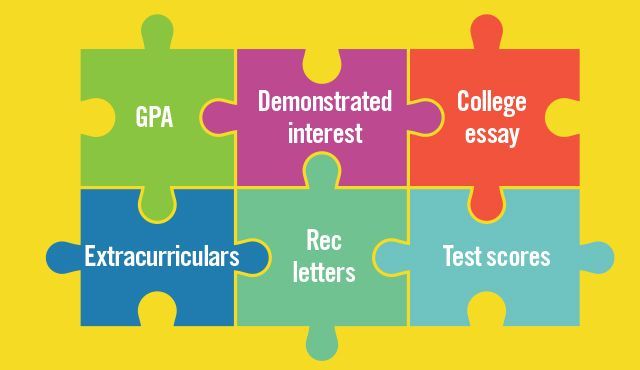The code to Ivy League schools: what factors determine your application outcome?
What Kind of Students Do Ivy League Schools Want?
Each year when I attend national college counseling conferences and speak with admissions officers from top colleges, I find that the most favored students can be summarized as: "Genuinely interesting people generate genuinely interesting achievements."
Let me start with one of our students who was admitted to Princeton. She was a physics whiz who had won several major competition medals. Of course, she was very smart, did well academically, loved reading, researching, and thinking—classic traits of most top students. But what I want to emphasize is that people often think these students succeed because they’re naturally gifted, when in fact, it’s more about unparalleled effort. For example, every time we met via video call, she was always in the lab. That was how she spent nearly every single day.
The second student was admitted to UPenn. She exemplified another trait that I find in many outstanding students: a clear, unwavering sense of self-awareness and values. Truly knowing yourself doesn't mean saying, "I want to study business because I want to be an entrepreneur" or "I want to study science because I want to be a scientist." It means having seriously thought about questions like “Who am I?” and “What do I really want?” and having a concrete plan. This student came to us two years in advance to start planning, and over that time, I always noticed that she had a strong sense of self-direction and clarity about her goals.
The third student was admitted to Columbia. She had been living in a boarding school since middle school, so she was very independent. She had her own opinions and a perfectionist streak—so much so that she often finished her assignments at the very last minute, which made both me and her essay advisor quite frustrated at times.
These students had very different personalities—some were outgoing, others introverted—but they all shared a few key qualities:
- Clear self-awareness
- Confident and humble
- Strong self-discipline and action-oriented mindset
This self-discipline and ability to act isn’t just about time management. There's a word in English—"grit"—which can be translated as the willingness to sacrifice short-term pleasure for long-term goals. These students were willing to put in the effort and give up temporary fun for something greater, whether their goals were mature or still evolving. I’ve found that these are the qualities all Ivy League schools value most. And of course, these qualities don’t develop overnight, but rather through years of intentional practice.
But of course, we can’t require students that much. Afterall they are just high school students and should enjoy their lives. Our job is to advise them from an admission’s perspective and maximize students’ chance to get into top schools. That’s said, let’s talk about what it actually takes to get into an Ivy League school. In short, quite a lot. Let’s start with a quick math problem.
Take a mid-tier Ivy League school as an example: the University of Pennsylvania (UPenn). For the Class of 2024, UPenn received 59,465 applications: 4,748 from in-state applicants, 41,407 from out-of-state applicants, and 12,210 from international students. The acceptance numbers were as follows: 419 in-state students (8.8% acceptance rate), 2,651 out-of-state students (6.4%), and 419 international students (3.1%). Additionally, 3,010 students were placed on the waitlist, and only 40 were eventually admitted — that’s a 1.3% acceptance rate from the waitlist.
From these numbers, it's clear that test scores alone don’t determine admission decisions: because most applicants have great scores. What really makes the difference are the non-academic factors. Let’s look at them one by one.
Rigor of secondary school record
This refers to both the difficulty of the courses you took and the overall academic level of your high school. First, did you take the hardest classes available, like honors or advanced courses? Second, is your school a “key school”?
Application Essays
By now after attending all the webinars and reading articles I have done, I think everyone understands how important the application essay is. If you’re still putting 70% of your effort into test prep and only 30% into your essays, it’s time to reevaluate. The story matters, but your storytelling skills matter even more. Your essay is essentially your autobiography — it should reflect your achievements, activities, personality, strengths, and standout traits.
There are a few common mistakes students make when writing their essays:
1. Weak logical flow.
We’ve worked with many students who have deep, thoughtful ideas. When talking to us, they can express themselves clearly. But once they start writing, things fall apart. Their English might be great, but the logic is unclear — they skip steps, and their evidence doesn’t actually support their main points.
2. Trying to say too much.
Some students want to cram everything they’ve ever done into one essay. The result? It reads like an extended resume, not a personal story.
3. Trying too hard.
In an attempt to stand out, some students exaggerate or present themselves in ways that feel fake or disconnected from reality, in one sentence, make themselves not like high school students.
4. Misunderstanding what’s important.
Some students highlight things that don’t matter and ignore the details that actually do.
5. Vague praise, no specifics.
Some essays sound more like self-assessments — full of compliments but lacking concrete examples or details that bring the story to life.
These mistakes aren’t about English skills. The real issue is in the logic and the misunderstanding of what colleges are actually looking for.
Recommendation Letters
You’ll need two to three recommendation letters: one from your counselor and the rest from your teachers. The most important one is the counselor’s letter because it gives an overall assessment of you as a student. When we help students prepare for recommendations, we always provide a detailed questionnaire to work through together. The answers help teachers write strong, well-rounded letters.
Personal Qualities
This refers to the key words I mentioned earlier when we discussed different students. Things like leadership, initiative, independence, curiosity, and so on. These traits should come through clearly in your application.
Extracurricular Activities
We’ve talked a lot about extracurriculars before, so I won’t repeat too much here. But I want to emphasize again: your activities should align with your application theme.
Special Talents
Again, something we’ve already covered in earlier posts.
First-Generation College Students
Since the Supreme Court struck down Affirmative Action, being a first-generation college student has become even more important in the admissions process.
In-State Residents
Even for private schools like UPenn, whether you're an in-state resident can have an impact.
Volunteering / Work Experience
These also play a role in shaping your application and showing your maturity and initiative.
How Scores and Non-Academic Materials Work Together in College Applications
Your test scores help determine which schools are within reach for you, but it’s the non-academic parts of your application that will ultimately decide if you get in.
These non-academic factors can seem unclear. There’s no one-size-fits-all formula, which leaves many students don’t know how to approach them. That’s why I want to introduce you to a key idea: your application theme. Once you grasp this concept, everything else — your essays, activities, recommendations, and interviews — will fall into place and start making sense.
What Is an Application Theme?
It’s the main message of your entire application. In simple terms, what kind of person do you want the admissions office to see? This is your “personal brand” or “main selling point” — the story you’re telling with every part of your application, like pieces coming together in a jigsaw puzzle.
















